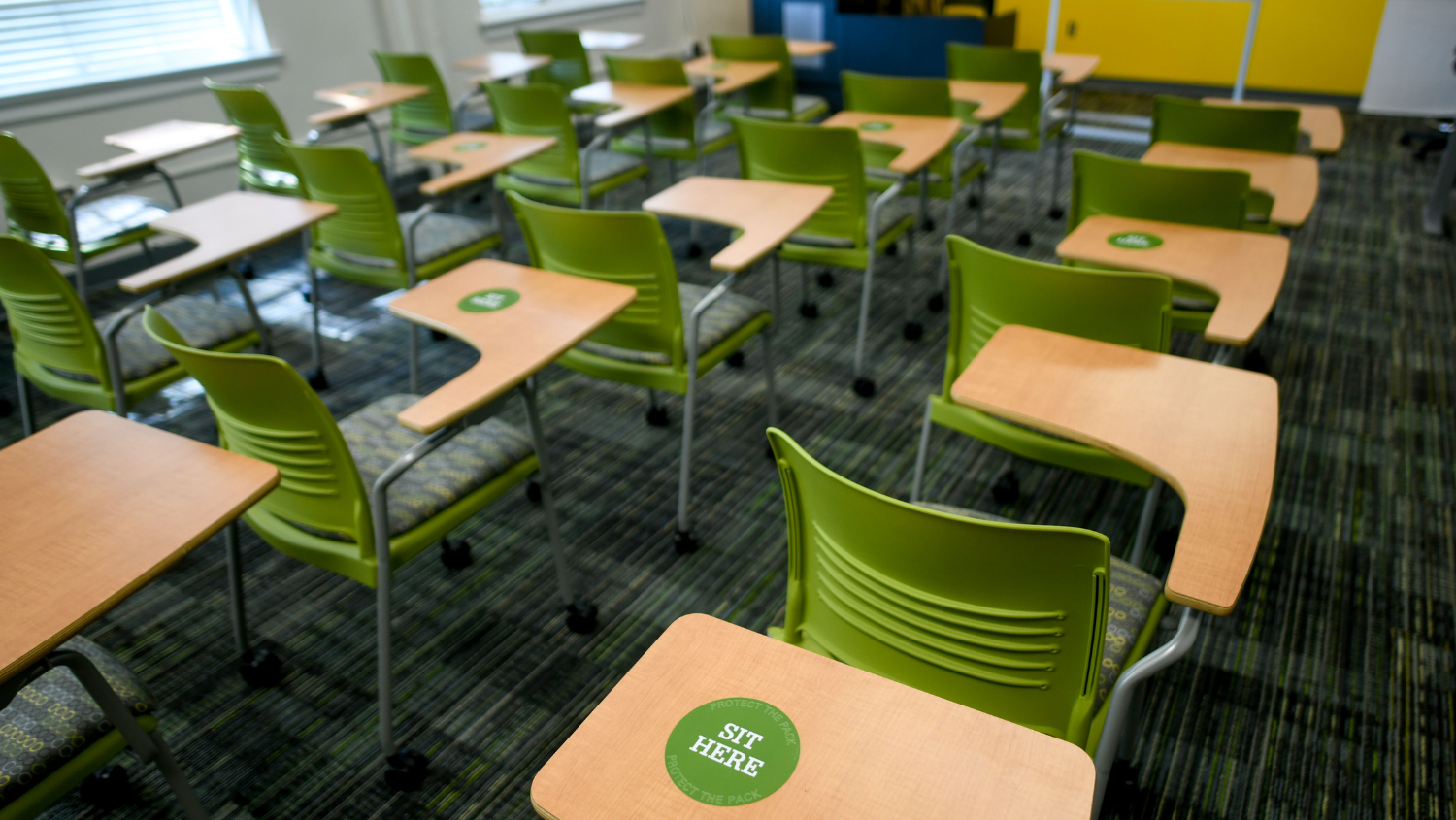Summer Energy Savings On Campus

During the summer, classrooms across campus will experience a decrease in activity and occupancy. This lull in classroom usage presents a unique opportunity for energy conservation at NC State.
The Summer Energy Savings Initiative (SESI) reviews unoccupied classrooms and buildings to implement temperature setbacks. Through the collaborative efforts of NC State Energy Management, Building Maintenance and Operations, University Sustainability and the University Registrar, this initiative reduces energy consumption and saves costs for the university.
Schedules provided by the University Registrar help to strategically locate courses held during summer sessions. When a classroom isn’t in use, the temperature will be set back from normal operating temperatures to a higher temperature, such as 80°F. This results in less peak electrical demand during the hottest summer months, which reduces cost and stress on the regional electricity grid.
This year, SESI has expanded its reach by encouraging building liaisons to opt-in to the program. Building liaisons who have rooms and spaces that they know will be unoccupied for extended periods of time during the summer should email save-energy@ncsu.edu and inquire about the eligibility of these spaces for inclusion in SESI.
In addition to the Summer Energy Savings Initiative, all staff, faculty and students can help save energy on campus through these simple actions:
- Hit the switch when you leave an empty room. Lighting accounts for 15 percent of energy use. You can also open blinds or shades to maximize natural lighting or use task lighting (powered by LEDs) instead of overhead lighting.
- Pull the plug to prevent electronics from using energy when not in use. Many devices still use energy even when not in use.
- Shut the sash of lab fume hoods, one of the biggest energy wasters on campus.
- Mind your monitor, which consumes over half of the energy used by an average computer; when not in use, turn off your monitor to save energy.
- Wash wisely to save energy and water. Only wash and dry full loads of laundry and use cold water to maximize energy savings.
For more information about the Summer Energy Savings Initiative, email save-energy@ncsu.edu and visit go.ncsu.edu/summerenergy.